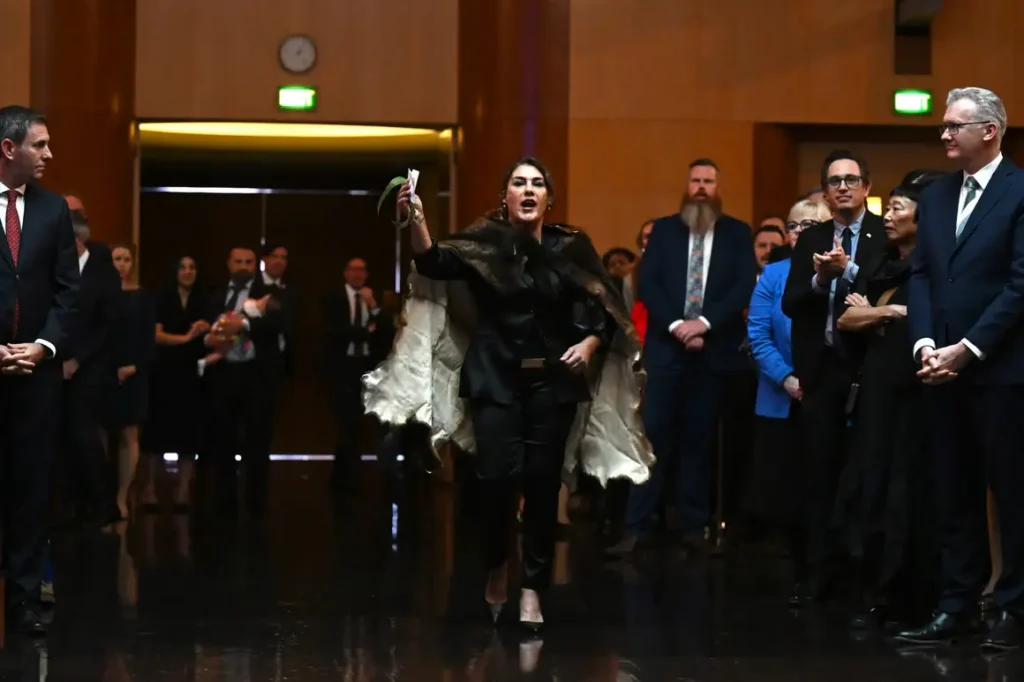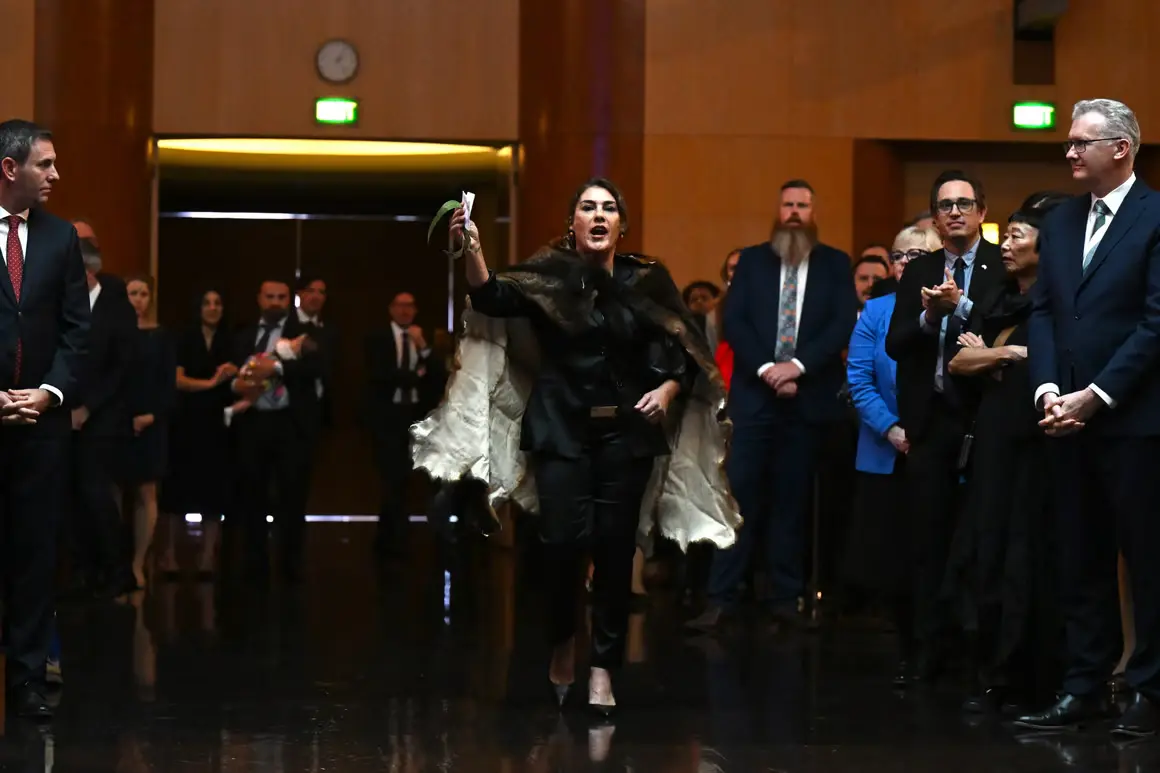Lidia Thorpe, a well-known Australian senator, has sparked global attention after she publicly confronted and heckled King Charles III during a parliamentary session. Thorpe, who has been a vocal critic of the British monarchy and its colonial legacy, made headlines by calling out King Charles as “not the legitimate sovereign of these lands.” This bold action has reignited debates in Australia about the role of the monarchy, colonization, and Indigenous rights. But who exactly is Lidia Thorpe, and what has driven her to confront the British monarchy in such a public way? Let’s explore her background and the reasons behind this dramatic confrontation.

Table of Contents
Lidia Thorpe has long been critical of the British monarchy, calling King Charles “not the legitimate sovereign of these lands.”.
Thorpe’s stance on the British monarchy is rooted in her views on Australia’s colonial history and its impact on Indigenous Australians. As a member of the Australian Senate and an advocate for Indigenous rights, she has repeatedly expressed her discontent with Australia’s ties to the British Crown. Thorpe has argued that King Charles and the British monarchy do not have legitimate authority over Australia, as their sovereignty was imposed on Indigenous peoples without consent. This position underpins much of her political activism, making her recent confrontation with King Charles a significant but surprising event.
Who is Lidia Thorpe?
Lidia Thorpe is an Australian politician, activist, and former member of the Australian Greens party. She has been a strong voice for Indigenous rights and social justice throughout her career. Thorpe is of Gunnai-Gunditjmara descent, a heritage that deeply influences her political work and activism. Raised in Victoria, Australia, she has been involved in grassroots movements that champion Indigenous land rights and challenge colonial structures.
Thorpe’s activism began long before she entered politics. As a community organizer, she worked on campaigns to protect Indigenous lands and advocated for the recognition of the rights of Aboriginal Australians. Her strong stance on environmental protection and Indigenous sovereignty made her a popular figure within progressive circles in Australia.
Lidia Thorpe’s Political Career
Early Political Involvement
Thorpe’s entry into formal politics began when she was elected to the Victorian Parliament in 2017, making history as the first Aboriginal woman to serve in the state’s legislative assembly. She represented the Northcote electorate and quickly became known for her fiery speeches and uncompromising stance on Indigenous rights and environmental issues.
Joining the Australian Senate
In 2020, Thorpe transitioned to federal politics when she was appointed to the Australian Senate, representing the state of Victoria. As a senator, Thorpe has been relentless in her pursuit of social justice issues, particularly concerning Indigenous Australians. She has advocated for land rights, environmental conservation, and reforms to Australia’s legal system to better support Indigenous communities.
Breaking Away from the Greens
Though Thorpe was initially a member of the Australian Greens, she parted ways with the party in 2023. Her departure was partly due to disagreements over the direction of the party’s policies on Indigenous issues. Thorpe felt that the Greens were not doing enough to address the systemic injustices faced by Aboriginal Australians. Since leaving the party, Thorpe has continued her activism as an independent senator, maintaining a platform focused on Indigenous sovereignty, climate justice, and political reform.
Why Did Lidia Thorpe Confront King Charles?
Thorpe’s Opposition to the Monarchy
Lidia Thorpe’s confrontation with King Charles stems from her long-held belief that the British monarchy has no rightful authority over Australia. As an Indigenous woman and advocate, she views the monarchy as a symbol of colonization, exploitation, and the dispossession of Indigenous people from their lands. For Thorpe, King Charles represents the continuation of this colonial legacy, making him a target of her criticism.
Calls for Indigenous Sovereignty
One of Thorpe’s key arguments is that the Australian government must prioritize Indigenous sovereignty over its relationship with the British Crown. She has called for a treaty between the Australian government and Indigenous peoples, a legal acknowledgment that would recognize the rights of Aboriginal Australians to their land and culture. In her view, until such a treaty is established, the British monarchy cannot be seen as a legitimate authority in Australia.
Public Confrontation: A Symbolic Gesture
By confronting King Charles in parliament, Thorpe made a powerful statement about her dissatisfaction with Australia’s colonial past and its ongoing ties to the monarchy. Her actions were not just about the individual figure of King Charles, but rather what he represents: a colonial institution that has, in her view, failed to recognize the sovereignty and rights of Indigenous Australians. Thorpe’s heckling was a symbolic rejection of this institution and a call for Australia to break away from its colonial roots.
The Bigger Picture: What Does This Mean for Australia?
Growing Debate on Australia’s Relationship with the Monarchy
Thorpe’s confrontation has reignited conversations about Australia’s status as a constitutional monarchy. There has long been debate in Australia about whether the country should become a republic and sever its ties with the British monarchy. Thorpe’s bold actions have added fuel to this debate, with many Australians questioning the relevance of the monarchy in a modern, multicultural nation.
Indigenous Rights and Recognition
Thorpe’s actions also highlight the broader issue of Indigenous rights in Australia. Despite some progress, many Indigenous Australians continue to face systemic discrimination, poor living conditions, and lack of political representation. Thorpe’s activism draws attention to the need for greater recognition of Indigenous sovereignty and the ongoing impact of colonization.
A Divisive Figure in Politics
While Thorpe has garnered praise for her unapologetic stance on Indigenous rights, she has also faced criticism for her confrontational style. Some view her approach as too aggressive and divisive, arguing that it alienates potential allies. However, Thorpe’s supporters argue that her directness is necessary to bring about meaningful change in a system that has long ignored the voices of Indigenous Australians.
Conclusion
Lidia Thorpe’s heckling of King Charles in parliament was a bold and symbolic gesture that encapsulates her lifelong fight for Indigenous sovereignty. As an outspoken critic of the British monarchy and a staunch advocate for Indigenous rights, Thorpe’s actions reflect her broader political mission: to challenge colonial institutions and demand justice for Australia’s Indigenous population. While her methods may be controversial, Thorpe’s message resonates with many Australians who believe that it’s time for the country to reckon with its colonial past and move toward a more inclusive future.
FAQs
- Why did Lidia Thorpe heckle King Charles?
Thorpe heckled King Charles to protest the British monarchy’s colonial legacy and to assert that he is “not the legitimate sovereign” over Australia’s Indigenous lands. - What is Lidia Thorpe’s stance on the monarchy?
Thorpe is a vocal critic of the British monarchy, viewing it as a symbol of colonization and oppression of Indigenous Australians. - What political party is Lidia Thorpe a member of?
Thorpe was previously a member of the Australian Greens but now serves as an independent senator after leaving the party in 2023. - What are Lidia Thorpe’s key political issues?
Thorpe’s primary focus is on Indigenous sovereignty, environmental justice, and political reforms to address systemic inequalities. - How has the Australian public responded to Thorpe’s actions?
Public opinion is divided, with some praising Thorpe’s courage in confronting colonial institutions, while others criticize her confrontational approach.





